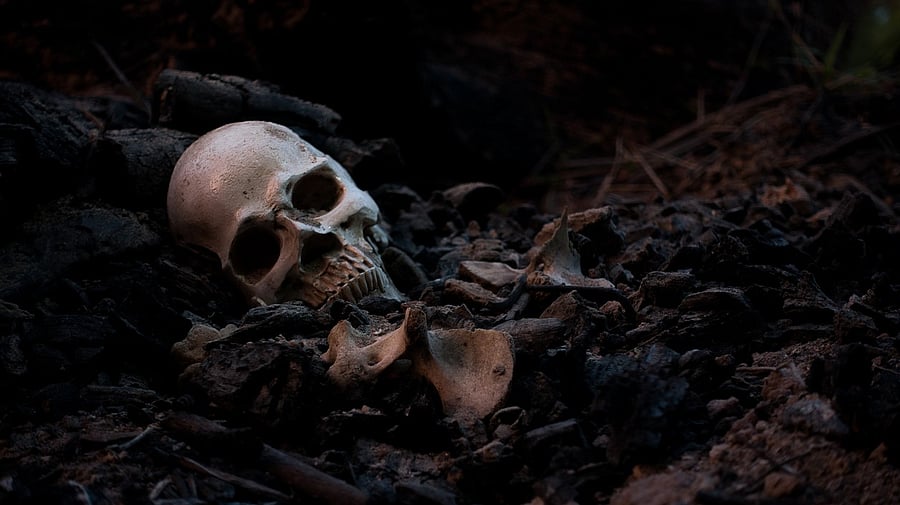
Image showing skeletal remains. For representational purposes.
Credit: iStock Photo
Ancient human ancestors likely ate children, a new excavation has found, shedding more light on the behaviours of our predecessors some 850,000 years ago.
The dark revelation came to light after Spanish archeologists, excavating the Gran Dolina cave site in Atapuerca in northern Spain, found a human neck bone belonging to a child aged two to four years, with the bone bearing clear marks of butchery, indicating that the child had been decapitated.
The discovery, startling as it is, suggests that members of Homo antecessor—the last common ancestor of Homo sapiens and Homo neanderthalis—may have devoured children clean.
"This case is particularly striking, not only because of the child's age, but also due to the precision of the cut marks," Dr Palmira Saladie, the co-director of the excavation, was quoted as saying in a report.
"The vertebra presents clear incisions at key anatomical points for disarticulating the head. It is direct evidence that the child was processed like any other prey," she added.
While cannibalism in early humans is well-document, it is quite unusual to find evidence of children being devoured, the researches noted.
"The new find reinforces the hypothesis that these early humans exploited their congeners as a food resource," the researchers stated, adding, "Every year we uncover new evidence that forces us to rethink how our ancestors lived, how they died, and how the dead were treated nearly a million years ago."
Once verified, the discovery could become the earliest known instance of such a practice.
Homo antecessor lived between 1.2 million and 800,000 years ago, and were shorter and stockier on average than modern humans, with their brain sizes (roughly between 1,000 and 1,150 cubic centimetres) being smaller than the average 1,350 cubic centimetres seen in Homo sapiens.
